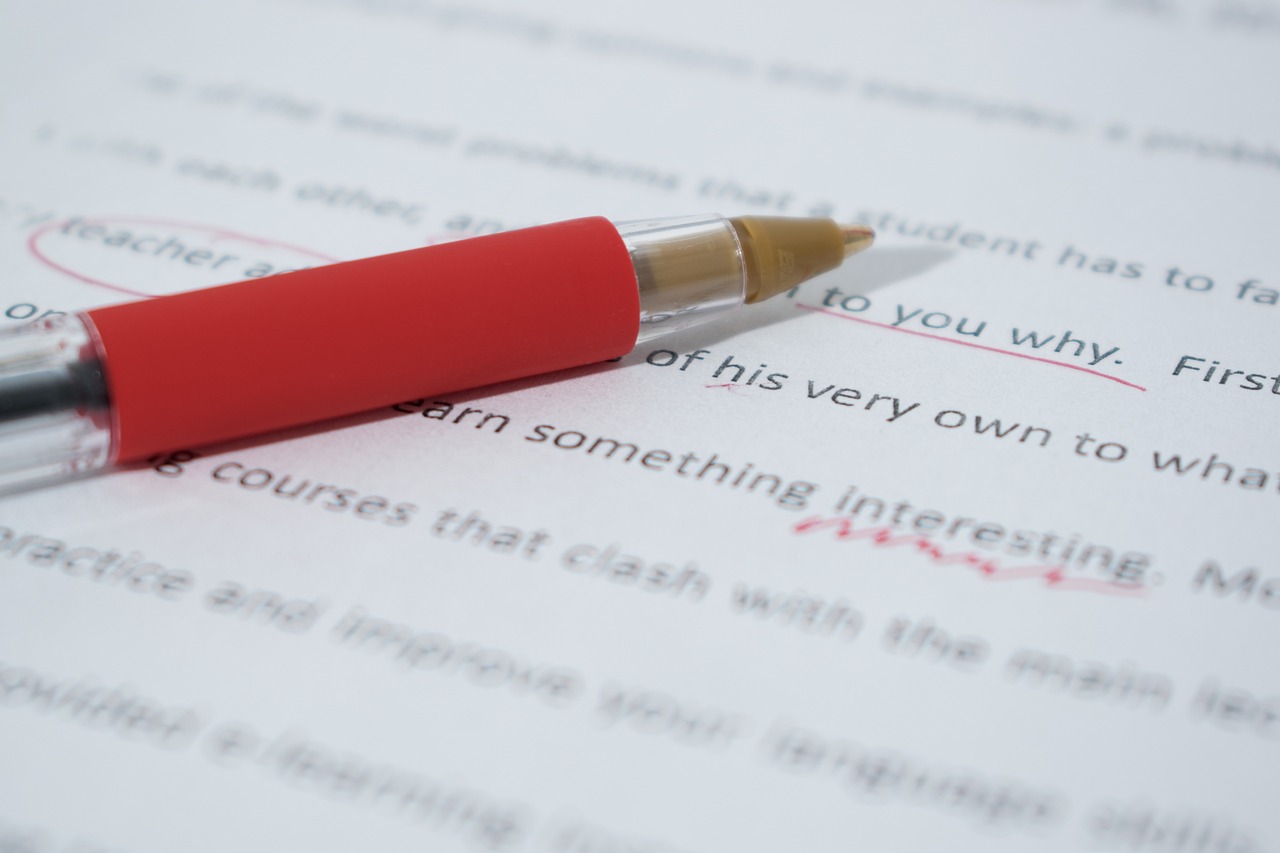When people find out I’m an editor, it’s not unusual for them to laughingly say something like, “Ooh, I guess I’ll have to watch my grammar around you!”
And I usually chuckle in response and tell them something like, “Oh, other people’s mistakes are my job security!” It’s all in good fun.
But I think these light-hearted exchanges get at a misconception about what it is to be an editor. People seem to have the idea being that editors are always on the lookout for gaffes and that we think less of people for their mistakes. Nothing could be further from the truth. In fact, becoming an editor made me far more tolerant of people’s mistakes. Why is that?
First, becoming an editor made me more aware than I ever had been how common certain mistakes are and how difficult they are to catch. The human eye has a tendency to see what you expect to see, and if you’re expecting to see the word from instead of form, that might be exactly what you see. It’s human!
Second, being an editor helped me understand that even the pros make mistakes. Despite being very good at catching slip-ups that have made it through multiple rounds of review, I still make mistakes. It happens. That’s part of being human.
Third, being an editor taught me that imperfect grammar and spelling isn’t a sign of low intelligence. For one thing, sometimes an error is just an error. The writer or speaker knew better but goofed. But also, plenty of intelligent, creative people have missed out on some of the nuances of English grammar. English may not be their first language, or they may just not have the knack for picking up on the finer points of grammar and syntax.
In addition, being an editor has shown me that grammar and spelling are far more fluid that many of us were taught. Of course, many people know about the differences between U.S. and British English or that different publications have different rules about whether or not to use an Oxford comma. But It wasn’t until I was presented with a Chicago Manual of Style in my first editing job that I really understood that the rules of capitalization depend quite a lot on the style manual or dictionary you use. And the rules have changed over time. During my career, I’ve seen drifts in opinion about whether data takes a singular or plural verb.
In addition, many of the rules that we’ve been taught aren’t rules at all. When I was in high school, I was taught never to begin a sentence with and; however, most stylebooks consider that acceptable. That’s been the case for as long as I’ve been editing. Splitting infinitives is likewise considered acceptable in most style manuals.
Finally, I fully understand that there’s a time and place to strive for perfection according to the traditional rules of grammar and a time and place for informality and frivolity with language. Not every social media post or friendly text or handwritten card needs to be perfect. A conversation with friends doesn’t need to adhere to the same rules as a formal speech. It’s fine.
As an editor, a large part of my role is helping writers figure out what the rules should be for their piece of writing and making sure they’re applied correctly. I look at style manuals, I consider the context and audience, and I certainly don’t hold authors’ mistakes against them.
My favorite kind of editing tends to be at the sentence and line level, wrangling individual words and punctuation marks to ensure they’re right for that particular context, but I also help writers with ideas and structure. At that stage, there’s not much value in worrying about the details. Some editors, in fact, vastly prefer working on those big-picture issues and don’t focus on commas and capitalization at all.
A good editor is not interested in finding fault or looking down on people for their mistakes. A good editor’s role is to help make an author’s ideas shine. That’s what I’m about.

